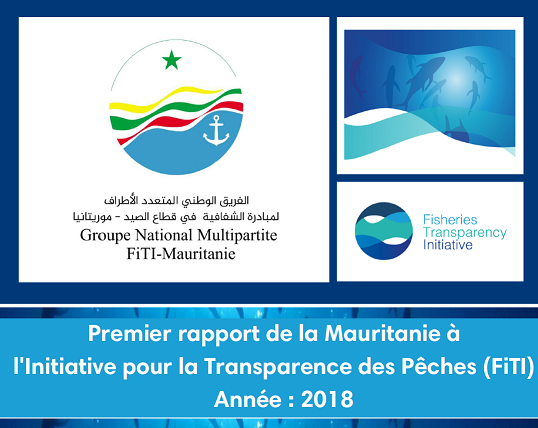Mauritania launches its 1st FiTI Report!

Today, the Islamic Republic of Mauritania launched its first ever report to the Fisheries Transparency Initiative (FiTI), marking an important step to enhancing the public availability of credible fisheries management information.
Mauritania is renowned for its abundant and diverse fisheries resources. Nearly 600 fish species have been inventoried, of which more than 200 are commercially exploitable. The importance that marine fisheries play for Mauritania in fulfilling the economic, employment, food security, and nutrition needs of its people cannot be underestimated.
Yet, over the last years the country’s fisheries sector has been characterised by a lack of transparency on basic information, such as the status of fish stocks, foreign fishing access agreements, or the number of vessels authorised to fish in Mauritania’s jurisdictional waters.
This report, comprising information for calendar year 2018, makes now known a range of previously unpublished information on various topics, for example:
- The contracts of all Mauritanian fishing agreements that were active in 2018, including with Japan Tuna Fisheries Coopérative Association, Senegal, and Poly-HonDone Pelagic Fishery Co.;
- A list of 452 large-scale fishing vessels authorised to fish in Mauritania’s jurisdictional waters;
- The total numbers of small-scale vessels (6,809) and small-scale fishers (24,984) operating in Mauritania.
In addition to the provision of key status information on Mauritania’s fisheries sector, the report also assesses the country’s level of compliance against the first 6 transparency requirements of the FiTI Standard, and provides 15 recommendations to the national authorities of Mauritania on how to improve transparency in fisheries management further.
While the report is already a remarkable endeavour – in particular given the challenges of the COVID-19 pandemic – the process of how this was achieved is even more noteworthy. The report was produced through a collective effort by Mauritania’s National Multi-Stakeholder Group, a group comprising of a total of 15 representatives from the government (5), fishing industry (5) and civil society organisations (5). This is not only in line with the United Nations Sustainable Development Goal 17, but also a prerequisite in order to ensure that the report is seen as credible and trustworthy.
The report is published in French and Arabic to facilitate understanding and public debates among Mauritanias’ citizens and partners.















